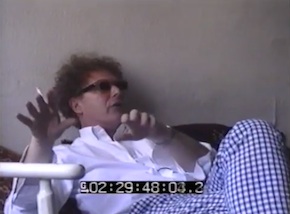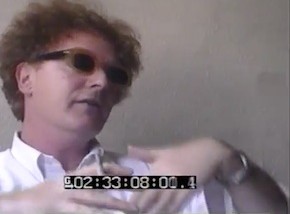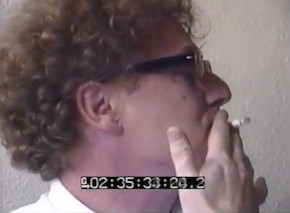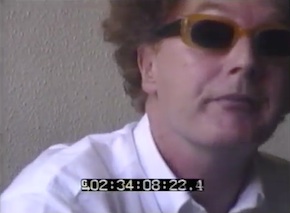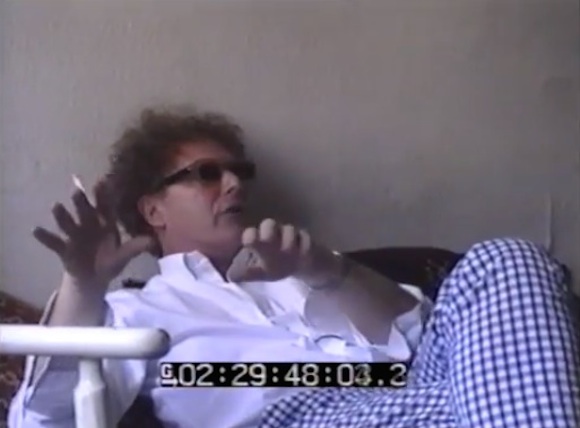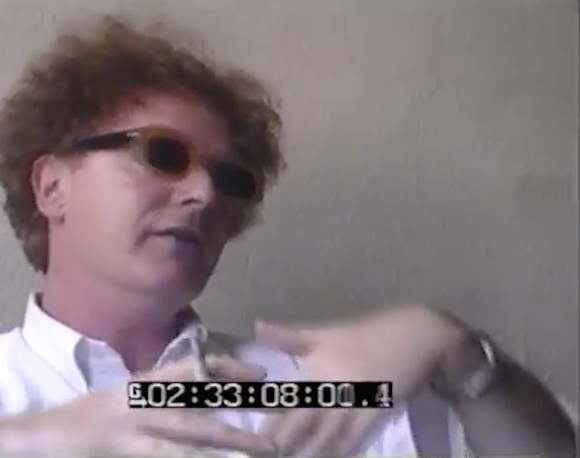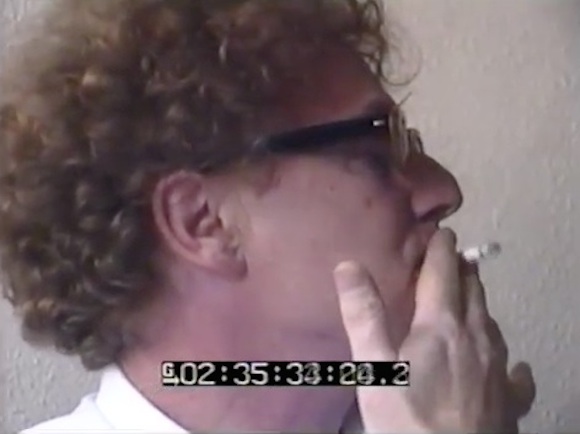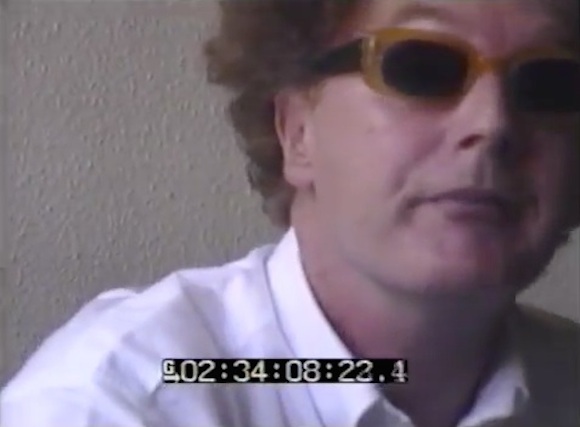“Downloading music is the future; you won’t buy music from shops’: Malcolm McLaren in 1996
//Stills from unedited interview with Malcolm McLaren by Ariel Van Straten, London 1996//
The establishment still aren’t quite able to understand interactive; it’s the street which understands it and is able to use it in a simplistic but very real way. They will be the people who break through; they will make it the most sexy. It won’t be as cerebral as the likes of Peter Gabriel or Eno and that lot.
[Handed underground dance CD]: See look, they’re already emailing, connected to the web, and that’s where it’s all happening.
Web TV, downloading music, graphics and so on is definitely the future, definitely where it is going to go. These guys are on the verge of suggesting in the years to come you won’t purchase your music from shops. Your cultural information is going to come through the Net.
Now it’s about buying the technology so that you can broadcast from your goddamn bedroom across the planet. I think the reason why the industry is holding back is because they know that it is only a question of the technology being affordable and that’s when it will happen.
Malcolm McLaren, London 1996
In the mid-90s photographer Ariel Van Straten interviewed Malcolm McLaren for a film about graffiti art. Entitled Getting Your Name Up, the short was made for a video-only issue of Don’t Tell It magazine, to raise awareness of the plight of Simon Sunderland, who had been jailed for five years for committing criminal damage on the rail network in South Yorkshire using the tag ‘Fista’.
Now Van Straten has uploaded the 60-minute unedited interview – filmed at his London flat by Nick Clark and recorded by Jossie Avrats – to Youtube.
As was his wont, McLaren used the exchange not only to provide a history of the development of hip-hop visual culture but also to talk about contemporary issues, and in particular the effect of digital developments on the entertainment industry.
Since I was earning my crust at this time as a contributing editor to music industry magazines, I can confirm McLaren’s assertion that the business was utterly out of touch with the grass-roots developments across the fast-moving internet.
In fact it was another two years, by which time file-sharing had really taken off, before a high-flying American executive broke the news about the MP3 to the bemused audience of an international conference of the heads of the major record companies I attended in Kuala Lumpur in 1998.
By that stage, Napster was waiting in the wings and rest, as they say, is history…
Watch Van Straten’s interview below or here. McLaren addresses digital around the 30-minute mark.
Fista continues to bate the authorities, according to this news report.
Visit Ariel Van Straten’s site here.
Watch the Tarantino-influenced 1995 cinema ad for Don’t Tell It here.

